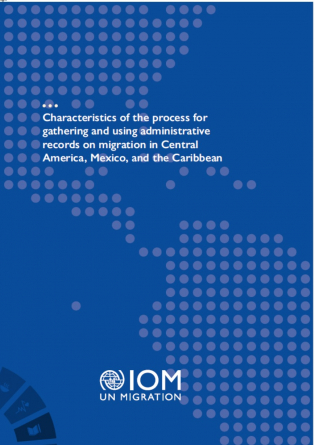Characteristics of the process for gathering and using administrative records on migration in Central America, Mexico and the Caribbean

Evidence-based migration policies are a fundamental component of good migration governance. To that end, the existence of solid, efficient migration information systems constitutes an essential element for fulfilling Goals 10.7 and 17.18 of the 2030 Agenda. Despite the progress made in this area during the last twenty years, significant challenges still remain to ensure the availability of up-to-date and real-time data and information on migration, as well as limitations on coordination between and within countries to facilitate the exchange of data and information.
This study describes the current characteristics of the migration information production systems in the region, highlights the region’s good practices and recommends which areas require support to maximize their potential. The report includes:
- Analysis of the importance of evidence and information management in designing, implementing and evaluating public policies on migration.
- The main challenges in the region regarding data collection and analysis.
- The principal migration trends in Central America and Mexico, as well as the topics analysed under this study, focusing on Costa Rica, El Salvador, Guatemala, Honduras, Mexico, Nicaragua and Panama, Belize, Guyana, Jamaica, St. Lucia and Suriname.
- The potential use of administrative records to measure progress towards the SDGs.
The report concludes that the processes for gathering migration data vary in terms of progress among the region’s countries due to institutional, economic, political and social factors. Some countries have high quality administrative record information systems. The findings of previous studies are confirmed, however: the current migration information systems were designed to improve and/or keep accounts for migration control services, but not for statistical purposes, as their principal function is administrative. This explains, to an extent, the limited interaction with statistics and census institutes in most countries and, hence, the limited use of the data and information generated to develop evidence-based migration policies.